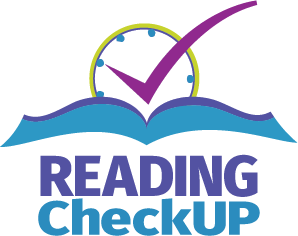Frequently Asked Questions
About the Reading Checkup
This community initiative coordinated by Read Charlotte and powered by Learning Ovations encourages Mecklenburg County families (with Prek-3rd grade students) to get a free Reading Checkup: A child completes two online quizzes, then parents/caretakers receive recommendations for specific reading skills to focus on at home, while choosing from targeted activities that meet the child’s needs.
The Reading Checkup is designed for children in grades PreK through third grade.
Read Charlotte is a nonprofit community initiative that unites families, educators and community partners to improve early literacy for children 0-8 years in Mecklenburg County, North Carolina.
Learning Ovations Inc. was founded to bring evidence-based and rigorously tested interventions and instructional practices to schools with the aim of raising learning outcomes for all students. Learning Ovations combines technology and professional development to provide educators with the tools, data, and know-how to effectively individualize literacy instruction from kindergarten through third grade.
You can contact Learning Ovations at support@learningovations.
Five years and 2,000 hours of classroom observations lead to the development of the patented A2i system. Seven randomized controlled trials (RCTs) demonstrated that coupled with professional development A2i can raise reading achievement for virtually all students to at or above grade level by the end of third grade. The A2i system links language and literacy assessment results to recommendations for specific amounts and types of reading instruction thru evidence-based algorithms. For more information, click here.
You can contact us at support@readcharlotte.org
It’s accessible through a web browser. The minimum technology required is a smartphone.
Read Charlotte is partnering with Charlotte-Mecklenburg Schools and local partners to connect the Reading Checkup initiative with local efforts to provide families with digital access.
Currently, the Reading Checkup is a free resource for families in Mecklenburg County only.
UNDERSTANDING THE READING CHECKUP
Reading skills really start to develop when a child starts school, so the Reading Checkup uses a score called the ‘Grade Equivalent’ to measure this ability. A Grade Equivalent score of 2.3 means that the child who completed the quiz has the reading skills of a typical child who has been in second grade for 3 months. A score of 0.5 represents a typical student who is 5 months into their Kindergarten school year. An on-level student would be a student entering third grade with a Grade Equivalent score of 3.0 and ends the year with a Grade Equivalent score of 3.9, representing 9 months of growth. (The school calendar has 9 months.)
Vocabulary skills start to develop at birth, so the Reading Checkup uses a score called the ‘Age Equivalent’ to measure this ability. This score indicates a child’s vocabulary level, compared to the age of an average, typically developing child. For example, an average child entering kindergarten should have an Age Equivalent score from 5.0 to about 5.50, meaning their ability is that of a child between the ages of 5 years to 5 years and 6 months old. The value before the decimal is the number of years and the value after the decimal indicates the percentage of progress in months (e.g. a value of .25 is 3 months, .5 is 6 months, and .75 is 9 months).
Early literacy skills can be split into two main categories:
1. Phonics, spelling, and fluency: skills that focus on turning letter sounds into words (code-focused)
2. Vocabulary, comprehension, and writing: skills that focus on reading or writing for understanding (meaning-focused)
The research behind the Reading Checkup shows that children learn best if they receive the right balance of activities, split between these two main categories. Use the pie chart to determine what your child needs most.
Children learn best if they spend some time practicing with an adult and some time practicing by themselves. “Adult managed” means time a child spends with an adult learning new skills.
There are multiple reasons why the quiz results might differ from what your school has reported to you. Not every assessment measures exactly the same things. A child can take the same test on different days and get different scores depending upon their energy level or how they feel that day. The quizzes in Reading Checkup are designed to identify your child’s specific needs to get them to grade-level reading proficiency. Despite the differences between the quiz results and what your school has reported to you, by helping your child improve their reading in the targeted areas we would expect the quiz results and scores reported by your school to eventually be about the same.
USING THE READING CHECKUP
Sit with your child one on one. Make sure you can both hear the questions. Help support your child without giving them the answer. It may also be helpful for your child to tell you their answers.
If you have questions, you can email mbrown@readcharlotte.org for support.
It’s recommended to take the quizzes approximately every six weeks to get new activities and update your child’s pie chart.
The quizzes in Home Literacy Coach are “adaptive”, which means the questions vary based upon students’ answers. The quizzes work by identifying the difficulty level of each question based on the grade level of the student. Then, the program adjusts which question a student sees next, based on their previous answer. For example, a test for second graders will begin with a question that most second graders get right. If the student gets the question right, he/she will get a harder question, but if the student gets the question wrong, he/she will get an easier question. By ordering questions in this manner, test scores are more accurate and assessments are significantly shorter. The quizzes have a large number of possible questions so children can be assessed multiple times without seeing the same questions.
The quizzes need children to get some questions wrong, so they can determine the ‘ceiling’ of their ability levels. This means there needs to be a range of easy and hard questions. It’s okay if your child doesn’t know the answer, as long as they try their best!
Yes, the Reading Checkup needs scores from each quiz to determine what skills and activities are best for your child.
The pie chart provided by the Reading Checkup should be used to help guide how your child spends their learning time! If you have enough time to work on multiple activities (an hour or more) consider dividing up the total amount of time based on how it appears on the pie chart. If you have less time, then select something from the largest areas of the pie chart to prioritize what type of learning they need most.
If your child’s pie chart includes a section that says 0%, this means that their reading skills have progressed to the point that additional focus in this area will not likely help improve their reading. Focus on the other areas instead.
The Reading Checkup is designed for children in PreK through third grade.
If your child scored above the fourth grade level, then we’d recommend focusing on meaning-focused activities, namely lots of reading. Have your child read independently and also spend time reading with them.
A Reading Checkup account can hold up to three (3) children.
The Reading Checkup is compliant with the Family Educational Rights and Privacy Act (FERPA) and the Children’s Online Privacy Protection Act (COPPA). If you are interested in learning more about Learning Ovation’s privacy policy click here.
You can email support@learningovations.org for support.
USING THE RESOURCES & ACTIVITIES FOR YOUR CHILD
Any activity listed in your recommended activities is a ‘right’ activity for your child, but there are some characteristics to consider if you want to narrow down the options!
- Think about how much time you have available; would a longer activity be better, are you looking for something that could be completed over multiple days, or would something short and sweet work better?
- Look at the title and description; does this activity or game sound like something you and your child would enjoy?
- Does your child get the “wiggles” and need a more active activity?
- Do you need to select activities that don’t require too much explanation?
There are plenty of options so don’t be afraid to pick a few or narrow it down!
You should use the quiz results to choose activities that match your child’s current reading needs. Feel free to choose different activities in the list or to adapt them to match your child’s specific interests. When your child takes their next round of quizzes, the results will be updated to match their current reading needs. You can then select from the updated set of activities.
We may add new activities in the future based upon feedback from families.
Click here to see a list of recommended K-5 texts from the EL Education literacy curriculum that is used in Charlotte-Mecklenburg Schools. These are good books to read with your child. Click here for recommended Active Reading strategies to get the most out of reading with your child.
For online texts, the Charlotte Mecklenburg Library has organized these lists of books by grade level. These books are appropriate both for reading with your child (adult managed) and for independent reading (child managed). Use your Charlotte Mecklenburg Library card to get access to these books online.
(Don’t have a library card? You can use your child’s student ID number instead. Click here for more information.)



